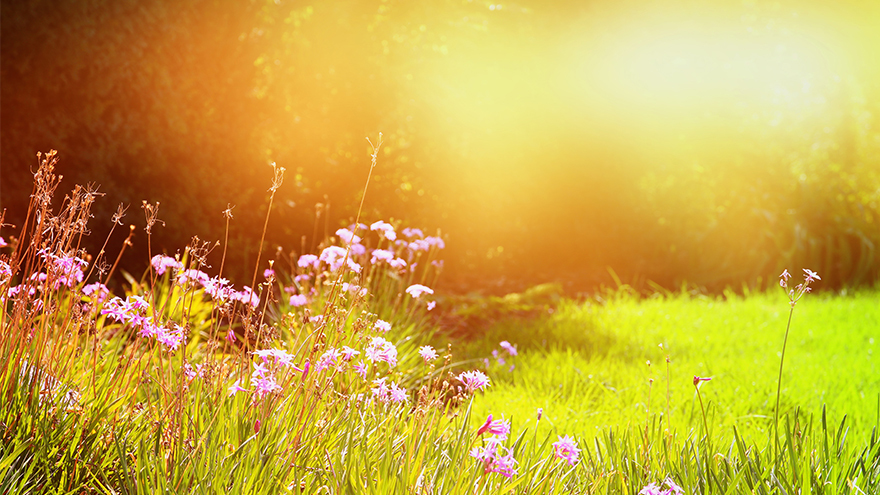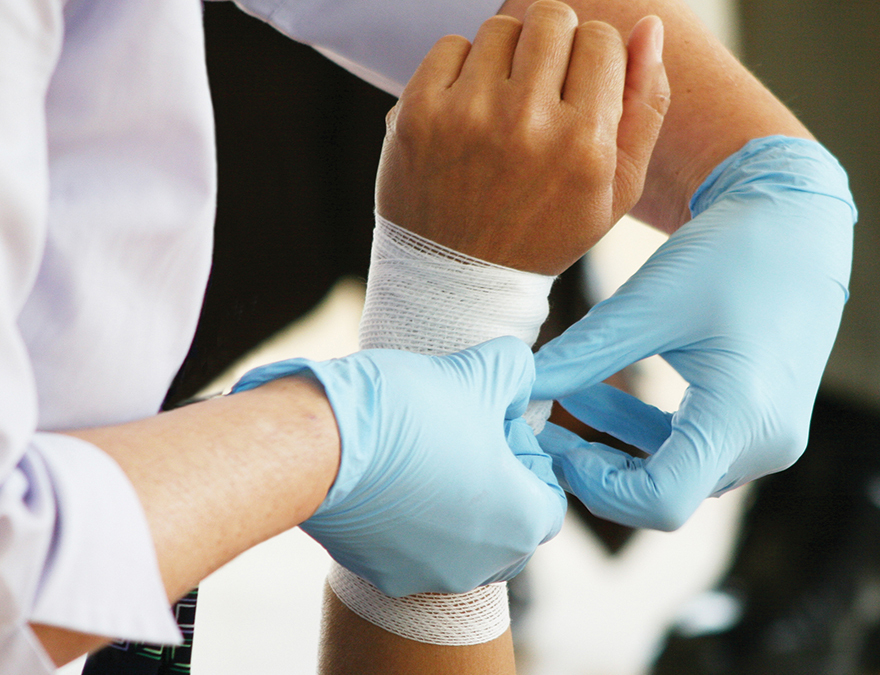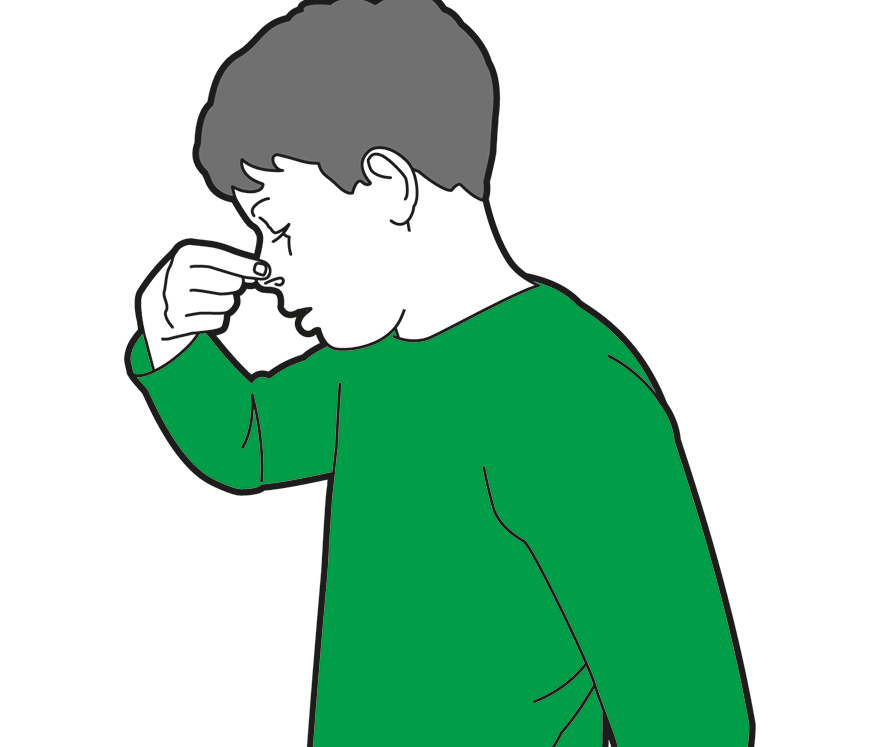Summer First Aid – Be Ready For Anything!

Many families are eagerly planning summer adventures to keep the kids entertained. Whether it’s a football friendly in the park – where cuts and grazes are not uncommon – or a trip to the beach that may come with its share of sunburn, St John Ambulance have provided some simple but life-saving first aid tips to keep kids, and everyone else, safe over the summer holidays.
With kids being at home for six weeks, it’s vital that you know a few first aid basics in case an accident occurs. Playtime in the garden can lead to insect bites or stings, cuts and grazes or more serious injuries such as fainting, dehydration or heat exhaustion.
A trip to the seaside could cause sunburn or heat stroke, and even a simple game of football or rounders could lead to a nosebleed or worse injuries such as a severe bleed. Don’t cancel these outings – just make sure you’re prepared! here’s some first aid advice on how best to treat these injuries.
Insect bites and stings
Whether in the park, or playing games in the garden, there’s a chance that anyone can get stung by an insect or a bee. Insect bites and stings tend to be distressing to children, but are rarely dangerous.
If you think your child has been stung, look out for a stinging pain, redness, swelling and irritation.
What to do
-
If you can see the sting, brush or scrape it off sideways
-
Reduce the swelling by placing something cold on it
-
If the sting is in the mouth, give them ice to suck
-
Raise up the area of the body affected
-
Keep checking the casualty’s breathing, pulse and level of response
-
If there are signs of a severe allergic reaction, call 999/112 immediately
-
If the area is not settling, seek advice from a healthcare professional
Fainting
Fainting occurs when someone briefly becomes unresponsive, because, temporarily, there is not enough blood flowing to the brain.
It can be triggered by long periods of standing or sitting still especially in the heat, so, it’s important to keep an eye on this during summer.
Ensure that your family and guests drink regularly and don’t stand up for extended periods during hot weather.
What to do
-
If someone feels faint, lie them down and raise their legs on your shoulders, to improve the blood flow to the brain.
-
Watch their face for signs of recovery, and as they begin to recover and become more responsive, help them to sit up gradually.
-
If they are slow to recover, prepare to treat someone who is unresponsive.
Cuts and grazes
These are common injuries. A cut is when the skin is fully broken, and a graze is when only the top layers of skin are scraped off. Cuts and grazes can usually be treated at home.
What to do
-
Clean the cut by either rinsing under running water or using alcohol free wipes.
-
Pat the wound dry using a sterile gauze or a clean, non-fluffy cloth.
-
Raise and support the injury, and apply pressure to stop any bleeding.
-
Remove the cloth or gauze and apply a sterile dressing or large plaster.
-
If there is something in the wound or if it is dirty, it may become infected. Consider taking the person to see a healthcare professional for advice
Dehydration
During summer, it is vital to remind children to drink more water than they usually would, especially if they want to spend more time outdoors.
Someone might be dehydrated if they complain about headaches, dizziness, they may have dark urine, muscle cramps, show signs of confusion and have a dry mouth, eyes and lips.
What to do
-
Prevent dehydration by encouraging people in your care to drink plenty of water.
-
If they are dehydrated, encourage fluids or give them some oral rehydration solution to replace the fluid and salt lost through sweating.
-
If they have muscle cramps, tell them to rest and help them to stretch and massage their muscles.
Heat exhaustion
If someone is in a hot environment and has become dehydrated, heat exhaustion or even heat stroke could occur.
Heat exhaustion is caused by a loss of salt and water from the body, usually from excess sweating. Headaches, dizziness, confusion, loss of appetite, feeling sick, sweating, and breathing that is fast but weak, are all signs to look out for.
-
If someone has these symptoms, take them into a cool, shady area
-
Help them remove any excess clothing to cool them
-
Lie them down with their legs raised
-
Give them plenty of water
-
You could also give them an isotonic sports drinks or a sachet of oral rehydration powder mixed with water, to help replace the salt and water they have lost through sweating.
-
Even if they recover quickly, suggest they seek medical advice.
Heatstroke
Heatstroke is even more serious than heat exhaustion, and can be life-threatening.
To spot heatstroke, the person may be restless, complain of headache, dizziness, feel hot to the touch, be red and flushed. As the condition worsens, the sufferer may also become confused or disoriented.
-
Try to lower their body temperature by removing as much clothing as possible
-
Phone 999 for emergency help
-
Move the patient to a cool place and wrap them in a cool, wet sheet until their temperature falls to near normal.
-
If a sheet isn’t available, sponge them with cool water
-
Once their temperature returns to normal, replace the sheet with a dry one
-
If their temperature starts to rise again, repeat the cooling process
Sunburn
The best way to avoid getting sunburn is to try and stay out of the sun, by staying in the shade, covering up with clothing, and applying high factor sunscreen.
Most sunburn is mild, but in severe cases the skin can become damaged, turn lobster red and blister. They may also develop heat exhaustion.
What to do
-
If your child has sunburn, cover the skin with light clothing and move them out of the sun
-
Give them cold water to sip
-
Cool the skin with cool water for around 10 minutes
-
Apply calamine lotion to soothe mild sunburn
-
If the skin is badly damaged or blistered, you should seek medical advice.
Severe bleeding
When bleeding is severe, it can be dramatic and distressing. The bleeding needs to be controlled quickly to ensure that the person does not lose a lot of blood.
What to do
-
To treat the wound, wear sterile gloves (if you have them) and remove any clothing around it
-
Apply pressure to the wound to stop the bleeding, using a clean non-fluffy cloth or sterile dressing
-
Lie the person down and raise their legs to treat shock
-
Call 999/112 for emergency help. Keep checking their breathing and whether they can respond to you.
Nosebleeds
A nosebleed happens when tiny blood vessels inside the nostrils are ruptured. Common causes of nosebleeds include a blow to the nose, sneezing, picking or blowing the nose, and high blood pressure.
Most nose bleeds are minor, and only last a few minutes.
What to do
-
If your child has a nosebleed, ask them to sit down with their head tilted forward to allow the blood to drain from the nostrils
-
Ask them to breathe through their mouth and to pinch the soft part of the nose for up to ten minutes
-
Encourage them not to speak, swallow, cough, spit or sniff because this may disturb blood clots that have formed in the nose
-
Give them a clean cloth or tissue to mop up any blood.
-
After ten minutes, ask the injured person to release the pressure on their nose. If the bleeding hasn’t stopped, they can reapply the pressure for another ten minutes. Once the bleeding has stopped, clean around the nose with water. Advise them to sit quietly for a few hours to prevent it bleeding again.
-
If the nosebleed is severe, or lasts longer than 30 minutes, arrange for the person to be taken to hospital.
St John Ambulance – spreading the word
St John Ambulance is the nation’s leading first aid charity.
Every year, 400,000 people learn how to save a life through our training programmes, including hundreds of thousands of young people. Our volunteers provide first aid in their communities, keeping people safe at events, and working alongside the NHS in response to 999 calls. We’re also always campaigning to raise awareness of first aid and directly educate the public.
First aid is such a simple skill, but it has an incredible impact. We want everyone to learn it, so that they can be the difference between a life lost and a life saved.
Find further information on first aid or download the free St John’s Ambulance app.
Enjoy the summer with our lower-calorie barbecue hacks!






